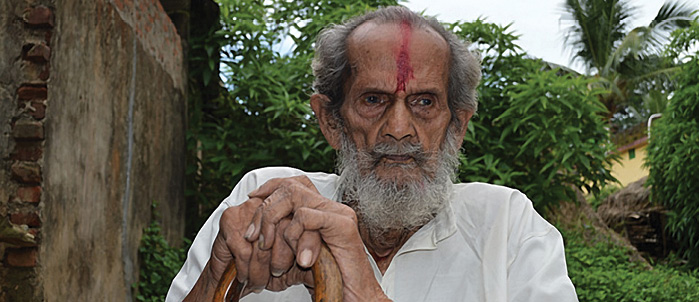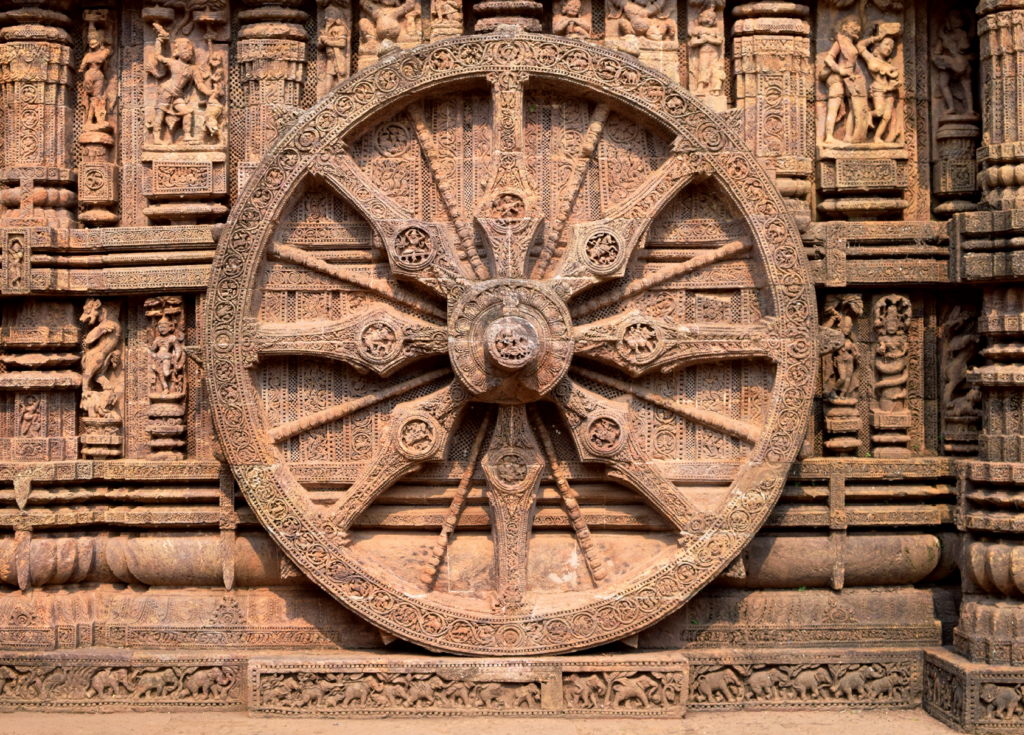In his early years as a king, back when he wore a younger man’s clothes, Brajraj Khyatriya Birabara Champati Singh Mohapatra, was a picture of youthful and outrageously wealthy hedonism.
He owned almost sixty luxury motorcars, enjoyed hunting wild game and, over weekends, took his friends to the city where they would spend 48 hours drinking the finest whisky, smoking hundreds of cigarettes, and entertaining as many young ladies as their drinking could accommodate.
“I would often visit Calcutta with my friend, the former king of Puri, and stay at the Majestic and Great Eastern hotels there,” he recalled shortly after his 92nd birthday in 2013. “I would drink to my heart’s content and have a jolly good time. I smoked 999 and State Express 555 brand of cigarettes. If a new car model came to the market, I just had to buy it. I owned cars and jeeps, including a Roadmaster, Chevrolet, and a Packard. We had thirty servants.”
He was an exalted young king of the British Raj, all the privileges a mortal life could possibly bestow, and he unashamedly enjoyed them until it all slowly vanished.

When he took his last breaths a few months ago, he did so on a fragile-looking bamboo bed, surrounded by nothing more lavish than a reusable plastic bottle in which he kept his water for the day. It had been many years since he had tasted whisky. Despite years of abusing his lungs and his liver, the wonderfully-named Brajraj Khyatriya Birabara Champati Singh Mohapatra had lived to the fine old age of 95.
Given his past lifestyle – one of an apparently aloof royal enjoying all the trappings he believed were his birth right – the casual observer would be forgiven for thinking that his subjects had good cause to dislike him intently. Quite the opposite, in fact. As with many royals of the Raj, they treated him like a god. But not because they felt any reverence by spiritual obligation, but because they genuinely loved him.
The kingdom of Tigiria is tiny – a 45 square mile verdant and lush paradise in the Cuttack District of the eastern state of Odisha. But Brajraj, being the colourful figure he was, put them proudly on the map. The people were, and indeed still are, deeply proud of him.
Much of this affection stemmed from good governance – something Brajraj himself only had a fleeting dalliance with. Before him, a long line of successful rulers had been taking care of this compact corner of Cuttack since 1246 when his forefathers established their feudal regions. That dynasty came to an end when Brajraj died in his shabby little mud hut on November 30, 2015.
The population of Tigiria is relatively dense, considering the heavy forestation within its borders, and this is directly attributed to the rule of Brajraj and his ancestors whose welcoming and gentle reign attracted many settlers. No accurate census has ever been attempted, but it is believed Tigiria’s population is approaching the quarter of a million mark.
Brajraj’s own reign had barely a moment to flourish. He ascended to the throne in 1943, but then, after what were remembered as glorious years for the tiny kingdom, he was effectively dethroned as he joined the other 25 heads of state in Odisha by signing the accession for India’s independence.
As the states moved towards national autonomy, the time of their rulers was coming to an end. Brajraj was a mere 22 years old when he took the throne, and only 26 when independence was gained. He had gone from a privileged life, born with the proverbial silver spoon in his mouth, to suddenly having no official claim to the throne that had been in his ancestral line for centuries.

The experience changed him greatly. As with many former rulers in India, his focus was moved from politics to kinship as a veil of melancholic nostalgia descended over the former Raj states. Despite the nation’s independence and newfound freedom to home rule without the British influence, the people of Tigiria still looked to Brajraj as their leader. And lead he did.
Discarding his old lifestyle, although he remained fond of decent whisky, he set about dedicating his life to helping his former subjects. He sold all of his properties for paltry sums to the government, but with the caveat that each one be put to good use as either a school, a hospital or a shelter for the poor.
A well-educated man, he had a talent for writing, and so began working for various Indian magazines. He was also an alumnus of Raipur’s Rajkumar College where he became a lifetime member of its governing body. This role gave him an honorarium of 50,000 rupees a year. Yet, other than a few petty travelling expenses, he didn’t keep a penny for himself. Instead, he would ride his rickshaw around Tigiria and disperse the money to the needy and vulnerable.
The rickshaw was some contrast to the modes of transport he had been accustomed to, as was his new home. Once residing in a vast palace, he had taken to living rough on a small hill where he spent his mornings building a tiny shack, and his afternoons visiting the people. Wherever he went, he would be offered food and supplies, but he rarely took more than a handful of rice.
His infectious warmth and generosity were legendary throughout Tigiria, and very much in keeping with the legacy of his forebears. He was also the tiny state’s nearest thing to any form of punishment. Other than a symbolic building with four pillars, a straw roof and no walls, Tigiria had no known jail. Instead, the most serious form of punishment was rejection by the king. It may come as little surprise to learn that, merely through the fear of not being able to engage with their beloved former king, Tigiria had a crime rate of almost zero.
From the 1960s, right up until last year, he would welcome people up to his modest hut on the hillside, sit them in his best white plastic chairs while he took his seat on the floor or bamboo bed, and grant them hours of his time. His wise counsel was sought far and wide from dignitaries beyond the borders of Odisha, but he would often tell them he was too busy in order to spend more time with his own people.
It was that same mud hut where he had offered guidance and direction to countless folk in which Brajraj Mohapatra, the last king from the days of British India, died peacefully in his sleep.
He had spoken of his imminent passing only days before the end, and, upon his deathbed, made his dying wishes. Surrounded by dozens of his adoring subjects, he asked that the tiny sum of 10 rupees be collected from those who wished to donate in order to pay for a cremation ceremony. Money poured in. Much, much more than was needed for the simple ritual.
Brajraj – or Aaja (meaning grandpa), as he preferred the people to call him – was given a grand funeral pyre on his hillside. Hundreds gathered to pay their respects to a flamboyant and kind-hearted throwback to a bygone age. But it is unlikely that he’ll be forgotten. Particularly as there are now plans to erect a monument to Aaja, or, as he was more formally known, Brajraj Khyatriya Birabara Champati Singh Mohapatra of Tigiria.





























